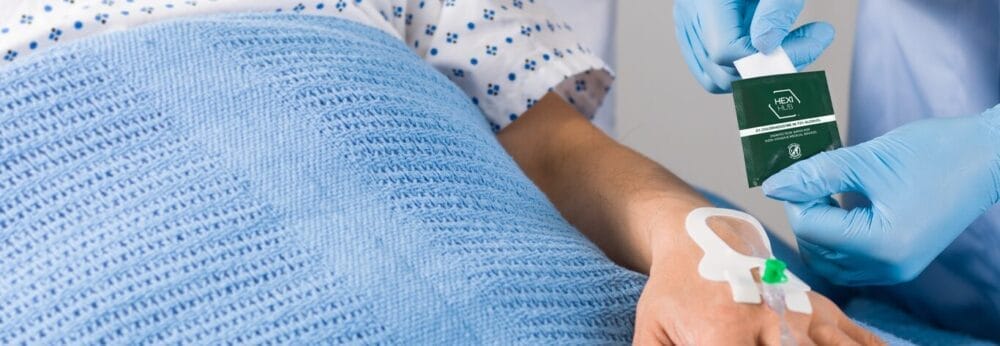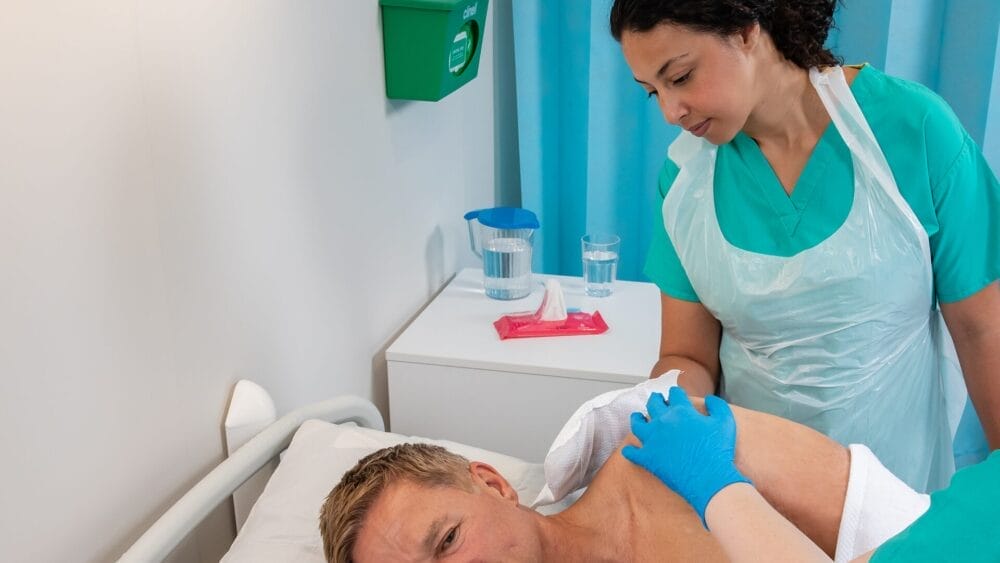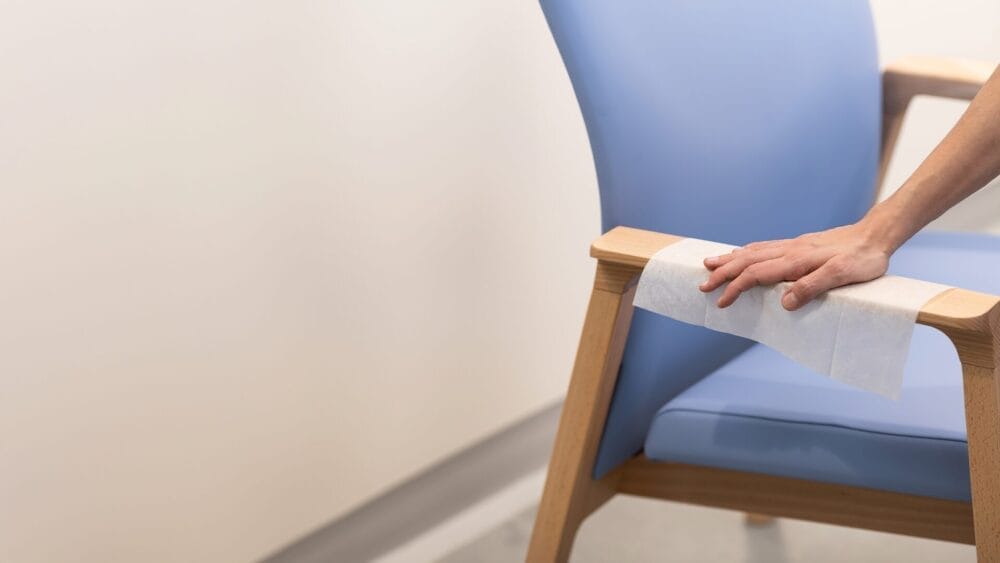Posted
29th December 2020
Research
Due to the new strain of the COVID-19 virus, many of us are facing tighter restrictions and spending more time at home. With this in mind, we look at how keeping your home clean can help prevent the spread of COVID-19.
From targeting frequently touched surfaces to wiping in an “S” shape, here’s how to protect those around you, by cleaning your home more effectively.
Why does cleaning help prevent the spread of COVID-19?
There is evidence which shows that dry surface contamination can contribute to the transmission of SARS-CoV-2 (virus which causes COVID-19) and other related viruses. What’s more, there is evidence that the SARS-CoV-2 virus can survive on surfaces for hours or even weeks. That’s why, it is so important to regularly clean and disinfect surfaces throughout your home to help prevent contamination and viruses spreading.
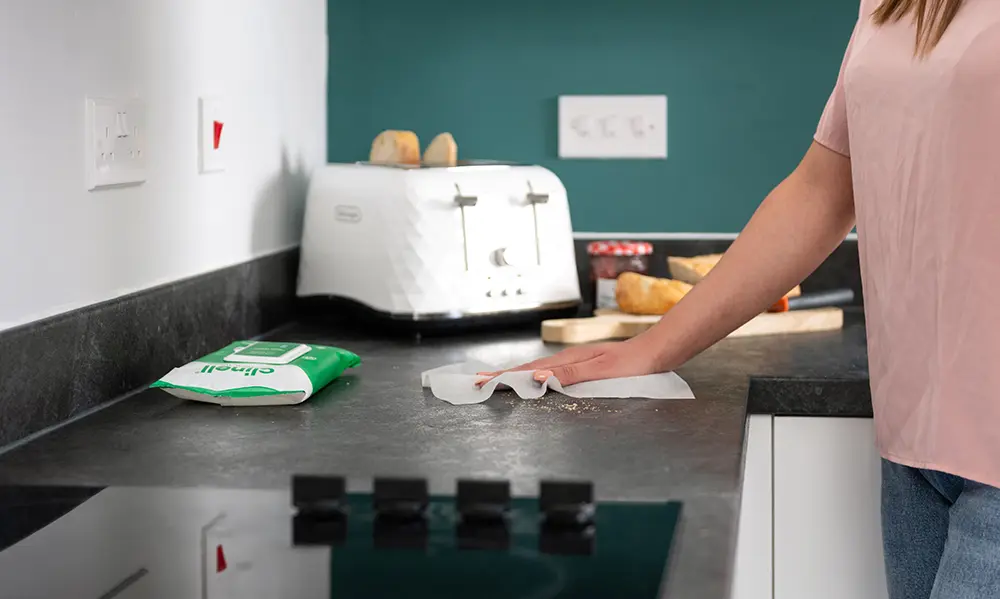
What areas in my home could be contaminated?
There are several areas within the home that can become contaminated with potential pathogens. These include: food contact surfaces, toilets, frequently touched surfaces, and waste/linen. Whilst your home is not a hospital, following a targeted approach to cleaning and disinfection can help prevent the spread of COVID-19.
Where should I focus my cleaning?
Look around your home and you will notice a number of surfaces that are touched more often than others. For example, light switches, doors, appliances, cupboard handles, even the TV remote control. These frequently touched surfaces are where you should focus your cleaning. To kill some lockdown boredom, why not try and count how many times people touch different surfaces – you will be be amazed!

What products should I use for cleaning?
When it comes to preventing viruses like COVID-19 from spreading, you want to clean and disinfect your surfaces. You need to clean before you disinfect. If you don’t clean, the disinfectant gets neutralised by the dirt, before it has a chance to kill the virus. Ideally, you should use a product which does both of these things at the same time.
Our Clinell Universal wipes, clean and disinfect in a single step. They are proven to kill bacteria in 10 seconds in dirty conditions, are effective against most viruses within one minute and can kill the COVID-19 virus in 30 seconds. Additionally, they’re the NHS’ number 1 disinfectant wipe, trusted by 9 out of 10 NHS hospitals to protect their patients, visitors and staff from infection.
RELATED CONTENT: Clinell efficacy against coronavirus (COVID-19)
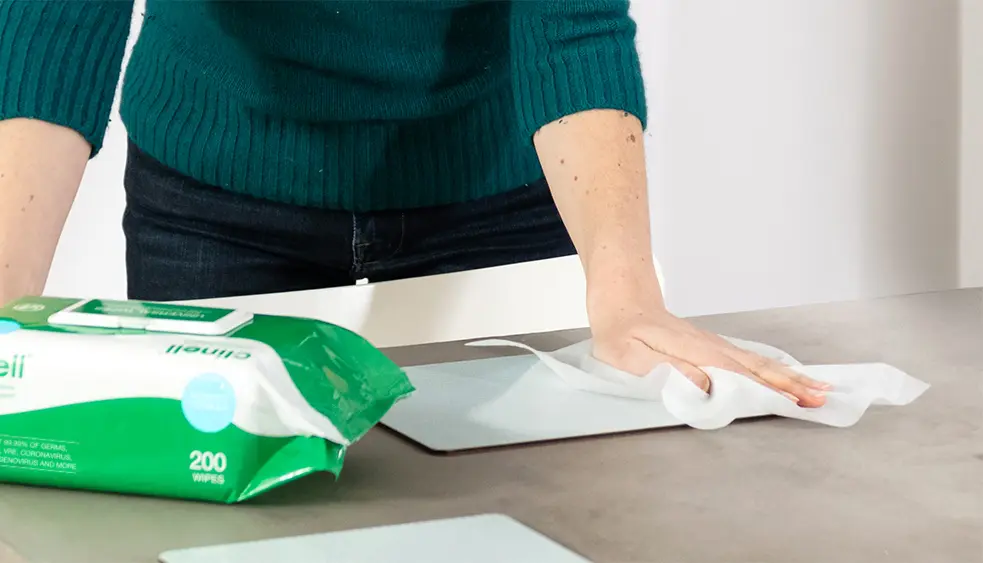
How you should clean your surfaces
We recommend following a “five principles of cleaning” method:
1. Wipe in an “S” shaped pattern
To prevent you contaminating part of surface you have just cleaned.
2. Work from top to bottom
This means that you clean in a methodical manner to ensure that you cover all surfaces.
3. Wipe from clean to dirty
To reduce the risk of spreading harmful organisms from the dirtiest areas.
4. Give the disinfectant time to kill
All disinfectants need contact time to kill, this can range from 30 seconds to as long as five minutes.
5. Use a separate wipe for each surface
This stops you from moving germs from one area to another.
Keeping it clean in 2021
Why not make it your New Year’s resolution to keep your home cleaner? If we each play our part, we can help prevent the new strain of COVID-19 virus from spreading. Evidence shows that enhanced targeted home hygiene and cleaning reduces the spread of pathogens and the risk of disease to your family and visitors alike.
For information on Clinell Universal wipes take a look at clinell.com. Help us spread the word about infection prevention by sharing this article on social.
SHARE THIS ARTICLE
Tags
Latest News
Embracing sustainability and cost savings: The journey of Clinell Indicator Notes to paper-based solutions
At GAMA Healthcare, we’ve always prided ourselves on being at…
Introducing HEXI HUB: A seamless transition in our product line
We’re pleased to announce an update to our product offering…
Innovative solutions for tackling Carbapenemase-producing Enterobacteriaceae (CPE) at King’s College Hospitals
King’s College Hospital NHS Foundation Trust, one of London’s largest…
Gloves Off: reducing unnecessary plastic waste during environmental cleaning and disinfection
In this blog, Dr Phil Norville discusses the momentum-gaining ‘Gloves…

